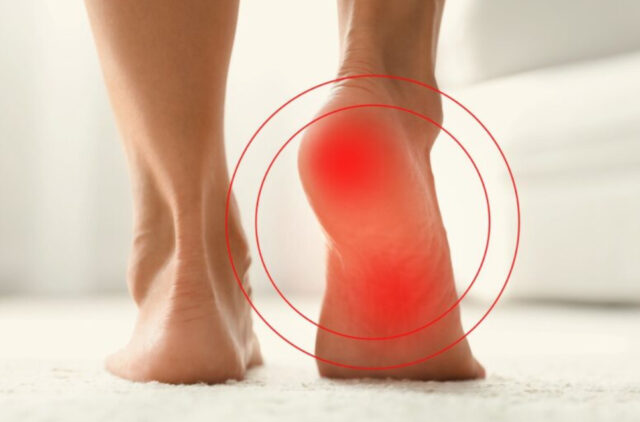Foot pain is a silent performance killer. In the Nigerian sports community, where football, athletics, basketball, and martial arts are passionately pursued, foot-related injuries are all too common yet often overlooked.
For both elite athletes and weekend warriors, foot pain can derail careers or hinder progress. This guide breaks down the most common causes of foot pain, how to treat it effectively, and—most importantly—how to prevent it before it starts.
1. Top Causes of Foot Pain Among Nigerian Sportspeople
a. Plantar Fasciitis
This is the leading cause of heel pain in athletes. It occurs when the thick band of tissue (plantar fascia) running across the bottom of the foot becomes inflamed due to overuse, poor footwear, or hard playing surfaces. Runners and footballers are especially at risk.
b. Achilles Tendinitis
The Achilles tendon connects your calf muscles to your heel bone. Repeated jumping, sprinting, or inadequate warm-ups can inflame this tendon, causing pain at the back of the foot. Ignoring it can lead to a full rupture, which may require surgery.
c. Stress Fractures
Tiny cracks in the bones of the foot—especially in the metatarsals—are common in athletes who train on hard ground or increase activity too quickly. They feel like a dull, persistent pain and worsen with continued activity.
d. Improper Foot Mechanics (Flat Feet or High Arches)
Many athletes are unaware of their foot structure. Flat feet or high arches can lead to uneven pressure distribution and chronic pain. Without corrective measures like orthotics, the condition may worsen.
e. Poor Footwear
A surprising number of Nigerian athletes use inappropriate or worn-out shoes. This mistake increases impact stress and reduces support, making injuries more likely. Each sport demands specific footwear—football boots differ from running shoes for a reason.
f. Turf Toe
This is a sprain of the big toe joint, caused by excessive upward bending. It’s common among footballers, wrestlers, and martial artists who make sudden starts or stops on hard or artificial surfaces.
2. Diagnosis and When to Seek Help
Ignoring foot pain only makes it worse. You should consult a doctor or physiotherapist if you experience:
- Pain that lasts more than a few days.
- Swelling, redness, or warmth in the foot.
- Difficulty walking or bearing weight.
- Visible deformities or bruising.
Nigerian sports medicine is evolving, with clinics and physiotherapists now available in urban centers like Lagos, Abuja, Port Harcourt, and Enugu.
3. Treatment Options
a. Rest and Ice Therapy
Rest the foot and apply ice wrapped in a towel for 15–20 minutes, several times a day to reduce inflammation.
b. Compression and Elevation
Using elastic bandages and elevating the foot helps control swelling, especially after a game or intense training.
c. Pain Relief Medication
Over-the-counter NSAIDs (like ibuprofen) help manage pain and reduce inflammation, but always consult a health professional first.
d. Physiotherapy
Targeted exercises and manual therapy techniques from a trained physiotherapist can restore mobility and strength.
e. Orthotic Insoles
Custom-made insoles correct biomechanical issues, improve arch support, and distribute pressure evenly.
f. Surgery
Surgical intervention is rare but necessary in cases of severe fractures, ruptures, or structural deformities.
4. Prevention: Protecting Your Feet, Preserving Your Game
- Always warm up and stretch before engaging in sports activities.
- Use proper, sport-specific footwear and replace them when worn.
- Avoid sudden increases in training intensity; build up gradually.
- Train on suitable surfaces and avoid concrete or uneven ground.
- Listen to your body—early pain is a signal, not a challenge.
Conclusion
Your feet are the foundation of your athletic performance. Whether you’re training for a local tournament in Lagos or playing pickup games in Enugu, understanding and protecting your feet is non-negotiable. Don’t wait for injury to sideline you—take action today. Prevention, proper footwear, and professional help when needed are the key steps every Nigerian athlete must take to stay ahead.
For enquires/Consultation
Call- Dr kolade kolapo
+234-7032088130









